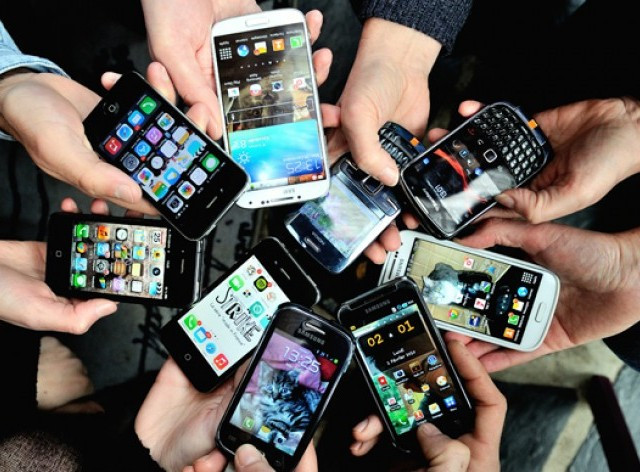Cellphones - a gateway to economic progress
UIG chief links society’s growth with mobile phone usage.

UIG chief links society’s growth with mobile phone usage. PHOTO:AFP/FILE
“Government should reduce taxes on the telecom industry and internet service providers as these two sectors are directly linked to the growth in GDP,” he said.
Talking to Islamabad Women’s Chamber of Commerce and Industry Founder and President Samina Fazil, he said Pakistan’s telecom industry had been paying Rs60 billion in taxes, which was one of the highest in the region.

Shahid said mobile phones had brought remarkable social progress in low-income countries while their impact had been estimated at a quarter of a trillion dollars in the poverty belt including South Asia and Sub-Saharan Africa.
He said according to a study of 120 countries conducted by the World Bank, a 10% increase in mobile phone penetration resulted in a 0.8% increase in economic growth.
From 1996 to 2011, mobile phone penetration in South Asia and Sub-Saharan Africa combined rose from 0% to 63%. During the 15-year period, the poverty belt achieved, on average, an additional 1% economic growth due to mobile phones, the study says. Shahid said in the same period, the combined GDP of South Asia and Sub-Saharan Africa grew from $811 billion to $1,870 billion, an average annual growth of 5.72%.
Without the impact of mobile phones, these economies would have grown at an annual rate of 4.72% and the economy of the poverty belt would have been worth only $1,620 billion.
“Mobiles are not a luxury product, but a mass product that advances economic situation of consumers by saving time, money, labour, transportation and opportunity costs,” he said. “Cellphones have resulted in continued economic and social progress in low-income countries, therefore, the telecom industry must be promoted by policymakers,” he added.
Published in The Express Tribune, July 21st, 2015.
Like Business on Facebook, follow @TribuneBiz on Twitter to stay informed and join in the conversation.



















COMMENTS
Comments are moderated and generally will be posted if they are on-topic and not abusive.
For more information, please see our Comments FAQ